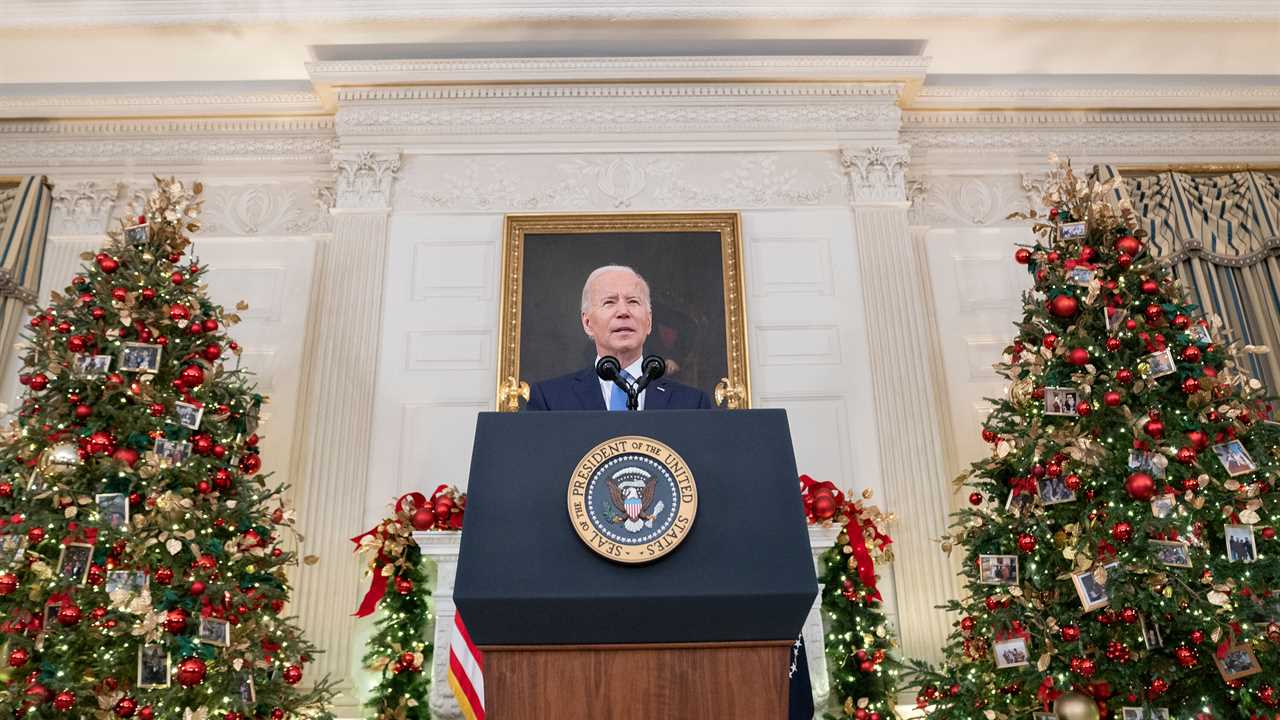
Given that this is the last On Politics newsletter before Christmas, and of 2021 for that matter, it seems like a good time to take stock and reflect on what a wish list might be for the nation’s leaders.
Today, Democrats control both the White House and Congress. But the party’s hold on power is so slim — the 50-50 split in the Senate means that Vice President Kamala Harris must break tied votes — that the entire Biden agenda is dependent on every single Democrat’s falling into line. And they aren’t all doing so.
History bodes poorly for the party of the president in a first midterm election, and many Democrats are bracing for a rout in 2022. Here is what we think the nation’s leaders are looking for in the New Year:
President Biden: He won the Democratic nomination after making two early bets in the primary that paid off big: that he would be seen as the most electable Democrat and that Black voters would be a loyal base. Both bets paid off. Similarly, Biden made an early two-pronged bet about the midterms: that a surging economy and a waning threat from the coronavirus would deliver victory to the Democrats.
Right now, neither is happening.
The omicron variant is bringing rising caseloads and fresh fears despite the widespread availability of vaccines. Meanwhile, monthly economic reports tell the story of the fastest inflation in decades, the kind of in-your-face figures that can swamp other positive economic indicators like the unemployment rate.
Mitch McConnell: The Senate Republican leader has an excellent shot at returning to the majority in 2023 — after only two years in the minority. But while the overall political landscape appears rosy for the Republicans, McConnell’s party must navigate a series of primary races next spring and summer that he and his allies worry could result in extreme and unelectable nominees.
Former President Donald J. Trump is an added X-factor. He has provided early endorsements for candidates who are not exactly prototypical McConnell recruits, including in North Carolina, Georgia and Pennsylvania, where the first Trump endorsee already dropped out. These days, Trump has even taken to insulting McConnell by name.
Chuck Schumer and Nancy Pelosi: The Senate majority leader and House speaker want mostly the same thing: to successfully negotiate passage of an enormous social policy bill, the Build Back Better Act, that would remake the social safety net and environmental policy.
But there is precious little maneuvering room when you need the votes of liberal firebrands as well as the most conservative members of the caucus, like Senator Joe Manchin of West Virginia.
Schumer has literally no votes to spare, which means every Democratically aligned senator holds de facto veto power. He also needs all 50 of those senators to stay healthy and present, not just for the Build Back Better bill but also other priorities like confirming judges and an attempt to pass voting-rights legislation.
Joe Manchin: The Senate’s most conservative and consequential Democrat recently declared on Fox News — yes, Fox News — that he was a no on the Build Back Better Act. It sent the White House scrambling and delivered a potentially fatal setback to the party’s signature legislation.
Kevin McCarthy: The House Republican leader has already started to be cast as the next speaker — presuming his party retakes the chamber — but his ascent would depend on more than just a Republican majority in 2022. Mr. McCarthy had to abandon his speakership ambitions in 2015. To succeed in 2023, he faces what Politico recently described as a “vexing speaker math problem”: a cohort of members yearning for an alternative, including some floating Trump himself. That may be far-fetched. But it is a sign of how hard it would be for McCarthy to navigate a majority as narrow as the one Pelosi has.
Kamala Harris: The history-making vice president has faced a rash of negative media coverage in her first year and discovered, as Mark Z. Barabak of The Los Angeles Times put it, that the “vice presidency is an inherently subordinate position and one that sits ripe for ridicule.” Some of her most senior communications advisers are departing, and 2022 offers the chance at a reset, especially given the uncertainty — despite the White House’s public proclamations otherwise — that Biden will seek re-election in 2024, the year he will turn 82.
Donald J. Trump: The former president may be off social media, but he has not receded from the political scene. He has been issuing statements from his new PAC at Twitterlike speed, endorsing a raft of candidates and continuing to raise money online by the bucketload, all while he is under investigation in New York for his business practices.
He is talking out loud about running for president again. But for a politician who wants relevance, why would he say anything else?






